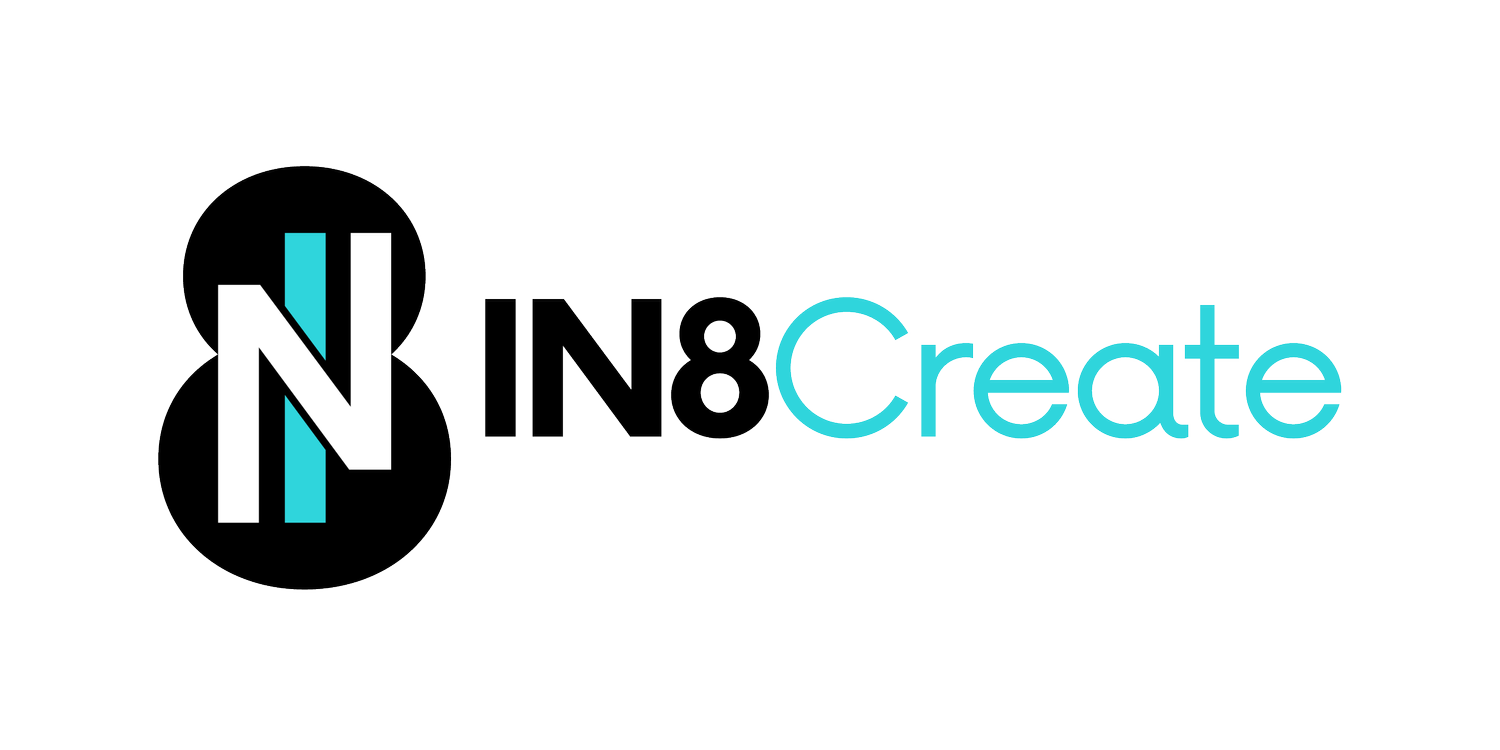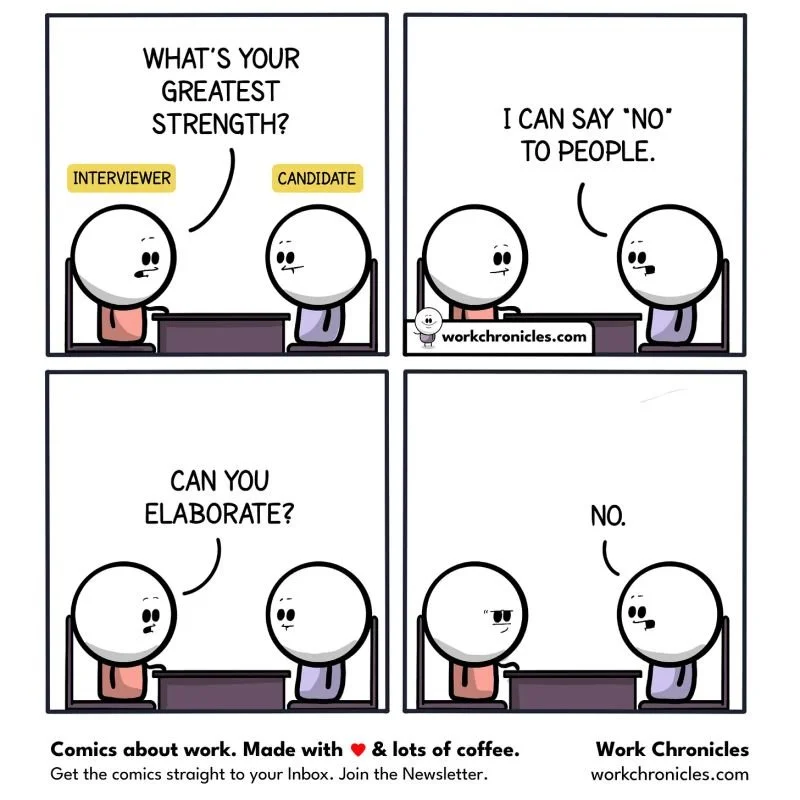Why Your Team Won't Say No
The Hidden Cost of Weak Psychological Safety
There’s nothing like a good defiant "no."
Could you pull that off in an interview? Or when your boss asks if the deadline is "doable"?
You want to. Most of us can't.
Your Project Review Charade
Your actual project reviews look like this:
"Any concerns with the timeline?"
Awkward silence
"Great, let's move forward."
Meanwhile, your best engineer knows the architecture will collapse under load. Your marketing director knows the messaging is tone-deaf. Your product manager knows the deadline is impossible.
But nobody says anything.
They've learned that speaking up costs more than staying quiet.
The Metric That's Lying to You
You may think your team communicates well because meetings run on time and nobody storms out.
Wrong metric.
Your biggest risk isn't the person throwing tantrums—it's the person nodding along while watching the train approach the bridge they know is out.
Your VP agrees to the restructure with a smile, then spends the next week fielding panicked calls from direct reports. Your senior engineer accepts the new framework, then quietly builds workarounds because "it doesn't handle our edge cases."
This isn't malicious. It's human.
When people can't voice real concerns in the room where decisions happen, they process elsewhere. Your strategy dies in a thousand small acts of quiet resistance while everyone pretends to be aligned.
What Actually Breaks First
When psychological safety breaks down, insight disappears exactly when you need it most:
Projects blow up because nobody flagged the technical debt everyone saw coming
Product launches fail because the market research concerns stayed buried in email drafts
Mergers crater because cultural friction gets dismissed as "adjustment period"
Transformations stall because implementation barriers never surface until they're disasters
Not because people didn't know better. Because they calculated that speaking up costs more than staying quiet.
Your Organizational Immune System
Stop thinking psychological safety is some touchy-feely HR initiative.
It's your organizational immune system.
When your team's immune system is strong, problems surface early. Course corrections happen naturally. Disasters get prevented, not managed.
When it's weak? People retreat into survival mode exactly when you need their courage most.
Your team is constantly calibrating: "What happens when I speak up here?"
The answer to that question, accumulated over dozens of small interactions, determines whether they'll save your next big initiative or watch it burn.
The All-Hands That Won't Save You
Your crisis hits. You schedule an emergency all-hands: "We need everyone's honest feedback. No judgment, everything's on the table."
After months of subtle signals that dissent isn't welcome, you think you can flip a switch and suddenly everyone becomes brave?
The foundation isn't there.
You can't ask people to be vulnerable in a system that's punished vulnerability for the past year. You can't demand candor from people who've watched others get marginalized for raising concerns. You can't create trust with a single inspirational speech after systematically eroding it through a hundred small decisions.
Where Safety Actually Gets Built
Psychological safety doesn't get built in the crisis. It gets built long before—in the mundane, boring, everyday moments nobody thinks matter:
Tuesday's Boring Staff Meeting
Someone raises a minor concern. You have two choices:
Option A: "We've already decided this. Let's move forward."
Option B: "Tell me more about what you're seeing."
Your team just learned whether speaking up is welcome or wasteful.
The Project Post-Mortem
Someone admits they saw the problem coming but didn't speak up. You have two choices:
Option A: "Why didn't you say something sooner?"
Option B: "What would have made it easier for you to raise this concern earlier?"
Your team just learned whether honesty leads to punishment or improvement.
The Direction Change
Better information surfaces that contradicts your preferred approach. You have two choices:
Option A: "We're too far along to change course now."
Option B: "You're right. This changes things. Here's what we'll do differently."
Your team just learned whether you value being right or getting it right.
The Small Interactions That Predict Everything
These moments feel inconsequential. They're not.
Psychological safety gets built when:
Pushback on small decisions gets valued instead of steamrolled
Questions get answered instead of dismissed as "not understanding the strategy"
Concerns get explored instead of explained away
Mistakes get examined instead of assigned blame
Different perspectives get integrated instead of tolerated
Each interaction sends a signal. Your team collects these signals over months. When the high-stakes moment arrives—when you desperately need someone to speak up and save you from disaster—they default to what feels safe.
If speaking up doesn't feel safe, your most critical intelligence stays buried exactly when you need it most.
The Real Question Your Team Is Asking
Every time you ask for input, your team isn't thinking about whether they have concerns.
They're asking themselves:
"What happened to the last person who raised concerns?"
"Does the boss actually want to hear this, or are they looking for validation?"
"Will this make me look incompetent or difficult?"
"Is this worth the political capital?"
"How much will speaking up cost me?"
These calculations happen in milliseconds. The answers are based on months of observation.
You can't change the calculation with a single "everyone should feel free to share" statement. You change it by systematically reducing the cost of speaking up and increasing the cost of staying silent.
What It Looks Like When It Works
Strong psychological safety doesn't mean everyone agrees. It means people can disagree productively.
You know you've built it when:
Your junior engineer stops the release because they spotted something senior people missed
Your marketing team pushes back on messaging that doesn't match customer research
Your product manager tells you the roadmap is unrealistic before you commit to customers
Your team surfaces problems early instead of hoping someone else will
The data is already in your organization. Always has been. The question is whether your system allows it to surface before it becomes a crisis.
The Foundation You Need Before the Pressure Hits
When stakes get high and pressure builds, people don't rise to the occasion. They default to their training.
If your team's training is "keep your head down and agree with leadership," that's exactly what they'll do when you need courage most.
Build the foundation now:
In this week's meetings: When someone raises a concern, pause and explore it even if inconvenient.
In your decision-making: Publicly change direction when someone presents better information.
In your language: Replace "any concerns?" with "what am I missing?" or "what could go wrong here?"
In your responses: Thank people for raising issues before addressing the issue itself.
In your priorities: Treat psychological safety as infrastructure, not culture work.
What Happens Next
Keep running meetings where everyone nods along while secretly calculating risk. Keep launching initiatives with preventable flaws that smart people saw coming but didn't mention. Keep wondering why your talented team doesn't speak up when it matters.
Or start building an immune system that surfaces problems before they become disasters.
The choice is yours. But understand: your team is already making their choice. Every day. Based on what they've learned is safe.
Want to understand what your team actually thinks? Stop asking them directly. Use LEGO Serious Play methodology to create the psychological safety that makes honest dialogue possible. Let's talk about building your organizational immune system.
Related Posts:



